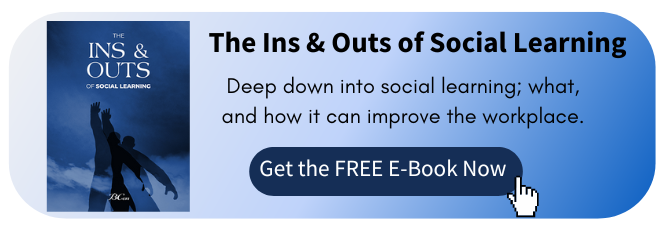Feedback: A Key to Optimizing Learning
Social Learning is about learning from others, practicing, and getting feedback. Feedback helps modify learning and growth. Moreover, feedback is 50% of self-awareness, as the way we see ourselves isn't necessarily how others see us. Therefore, feedback plays a significant role in self-development. But it's not always easy to ask for feedback or receive it. Let's explore together how we can ease this process.
Six Steps for Asking for Feedback1,2
Reactions can be frightening. Feedback is frequently interpreted as being retroactive. Although they are not the same, advice and feedback often go hand in hand. However, you are also picking people based on their interactions with you when you solicit feedback from others. The ask already includes the feedback. However, if you follow the appropriate step-by-step procedure, you'll be better equipped to receive the criticism you want and to start improving.
1. Consider What You Want to Achieve
Understand why you are seeking input. Your aim will often be to get a clear image of what you're doing well and where you may improve. The intention is for you to leave with concrete takeaways that you can put into practice.
2. Choose the Appropriate Persons to Contact for Comments
Ask for comments only from those whose motives you believe in and who will have a pertinent viewpoint. Consider your coworkers who are most knowledgeable about your line of business. Pick the acquaintances you converse with the most. Although it might be helpful to hear from others, also consider whose work and perspectives you value.
Consult coworkers, team members, clients, and managers with various management styles to acquire a well-rounded perspective. The term "360 feedback" refers to receiving input from those at your level, above you, and below you.
3. Prepare Your Questions Upfront
You need to ask the right questions to obtain the best guidance and criticism. Think about any areas where you encounter difficulties frequently or where you feel there might be a disconnect. In that case, it helps to know that there are several types of questions that might help you:
・Open-ended questions
When you want to learn more or have a broader debate about a particular subject, you might use this question style because the answers need to be more in-depth.
Examples:
- How can I provide better support to my teammates?
- What are the different ways through which I can improve my communication?
・Closed-Ended Questions
Those questions yield Yes/No answers or specific ratings or replies.
Examples:
- Am I a good communicator?
- Please rate my cooperation towards my teammates on a scale from 1 to 5
4. Ask for Examples
After asking for input, you might need to follow up with a follow-up question to elicit further details. Sometimes people would occasionally say things like, "I just think you need to be more assertive, more proactive, or more of a team player." That is what we refer to as a label—vague. It isn't beneficial. The label needs to be opened. Ask incisive inquiries to get the job done, like, "Can you explain what you mean?" "How could I have acted with more confidence right now? And what sorts of actions should I take moving ahead to become more assertive?"
5. Take Notes of Your Feedback
Responses are gifts. Hearing advice with an open mind and intending to put it into practice is crucial to requesting criticism. Remember that receiving feedback gives you a chance to learn how other people view you and your work.
Even if you disagree, being aware of other people's viewpoints is still beneficial. Consider yourself in the other person's position, and remember that receiving feedback can also be difficult. Put your ego to the side and receive counsel with a grateful attitude.
6. Reflect and Plan
After you hear the feedback, consider what you'll do with it. Put the feedback in order so you can refer to it afterward. Create a step-by-step strategy outlining how you'll implement the feedback in practical ways.
1HBR, 15 May 2015, Carolyn O’Hara, How to Get the Feedback you Need, Accessed 2 Dec 2022, How to Get the Feedback You Need (hbr.org)
2BetterUp, 14 Feb 2022, Maggie Wooll, Become a Pro at Askin for Feedback, Accessed 2 Dec 2022, How to Ask for Feedback (with Examples) (betterup.com)
For more about this topic, download our latest book " The Ins & Outs of Social Learning" for FREE:

To help you get the best from feedback, download the worksheet by filling out the form below: